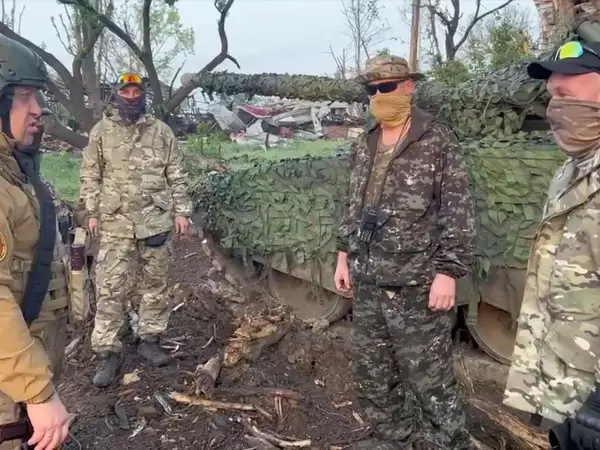Although Iran’s official reaction to the ‘Wagner rebellion’ was cautiously supportive of Vladimir Putin, some politicians have spoken more explicitly about the event.
Ultraconservative lawmaker and former IRGC general Esmail Kowsari, who is a member of the Iranian parliament's National Security and Foreign Relations Committee is adamant that the challenge will not weaken Putin.
Kowsari said in an interview with Didban Iran website on Sunday that what happened in Russia was the work of Western infiltrators among the Wagner group.
"Certainly, the Westerners have their infiltrators among these forces. The West uses them to weaken the Russian front in the war against Ukraine, but this will inevitably harm the West's position."
Speaking on the impact of the Wagner rebellion on Russia's relations with Iran, Kowsari said: "The Russian army has orders from Putin to suppress the Wagner forces. The event is not likely to affect Tehran's ties with Moscow. We believe there is an easy solution for this problem and Russia is powerful enough to overcome the situation."
Referring to the Islamic Republic's alliance with Russia, Kowsari said that this does not mean “we are depending on Russia.” However, the two countries have commitments to each other.
In the meantime, one IRGC-linked Telegram channel, The Cyber Army of Iran, quoted Russian sources as saying on Saturday that Putin spoke over the phone with his Iranian counterpart Ebrahim Raisi but it did not elaborate on what the two spoke about. The report was not seen on any other platform and thus cannot be verified independently.
In another development, the former head of the Iranian parliament's National Security and Foreign Relations Committee, Heshmatollah Falahatpisheh, told Didban website that following Saturday's challenge by Wagner, Putin can no longer claim to be as powerful as before.
Although a conservative, Falahatpisheh is certainly not a hardliner and his foreign policy views are generally less ideological than those of politicians like Kowsari.
Falahatpisheh added that "It was naturally clear that Putin cannot have a stable future." He further remarked that "We are going back to the Yeltsin period."
He said: "Putin has learned all the lessons but one from Maciavelli.” That is where the Italian mastermind said, military objectives cannot be pursued by mercenaries, Falahatpisheh noted. He added that when Putin started to recruit criminals for the war, one could say that it was difficult for military commanders to establish a working relationship with the recruits.
Nonetheless, Falahatpisheh refused to characterize Wagner's challenge as a coup and described it as an armed mutiny. This was the description also used by Putin in his address on Saturday.
Meanwhile, the conservative pundit advised the Iranian government not to put national interests at risk by involvement in Russia’s or Putin’s affairs. Iran can easily become a victim of Putin pursuing his own domestic interests.
Falahatpisheh pointed out that what the IRGC-linked Telegram channel did on Saturday by voicing support for Putin was “hasty” and unnecessary.
He explained that "what is happening in Russia is the outcome of Putin's ambitious strategies and was quite foreseeable. During the past months we saw that Prigozhin started to behave aggressively, probably demanding a higher compensation for his men, and then protesting that he was not receiving enough logistical support."
Referring to the historic precedence, Falahatpisheh said Putin might behave like the Bolsheviks did in 1917 and sacrifice his foreign policy for his country's domestic politics. He opined that Putin might be able to defeat or isolate Wagner forces in the short run. But in the long run, he is no longer the same powerful man.
